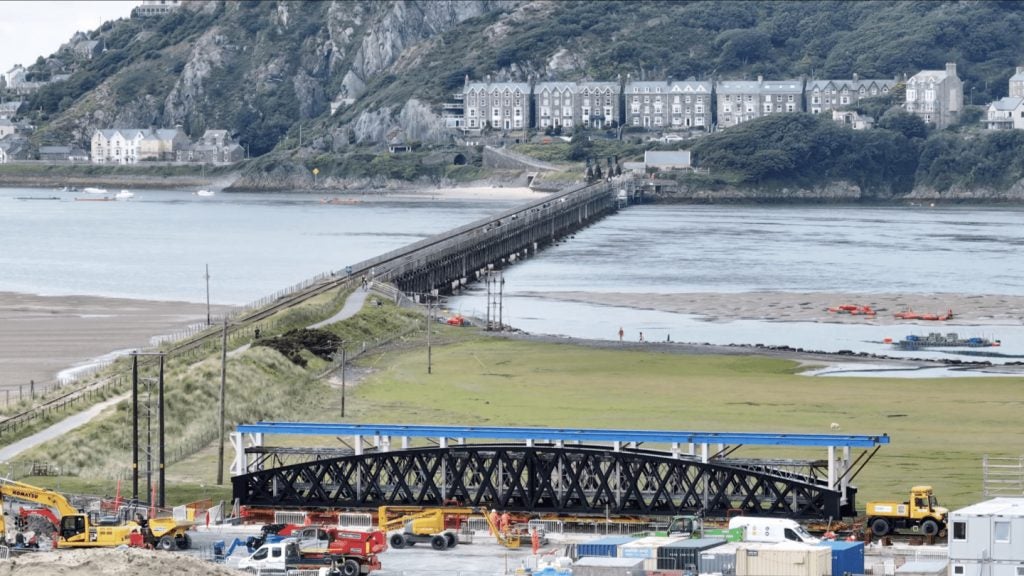The final stage of the multi-million pound refurbishment of the Barmouth viaduct in Northwest Wales is set to begin this September after Network Rail completed a mock manoeuvre ahead of lifting the spans onto the real viaduct.
Network Rail and its civil engineering partner Alun Griffiths will lift two 160-tonne metallic spans onto the viaduct and transport it via rail to the bridge where the old span will then be taken apart and moved onto a pontoon.
Nick Millington, route director for Network Rail Wales & Borders, said the team’s focus was on restoring the metallic elements of the bridge on a like-for-like basis.
He said: “A huge part of this phase of work has been planning the replacement of the metal spans, a feat of engineering that has involved months of preparation to develop a unique delivery and installation system.
“We have also worked closely with our partners at Natural Resources Wales to ensure we are doing everything we can to protect the delicate ecology of the Mawddach Estuary.”
The works will begin on Saturday 2 September and are expected to take 13 weeks, with the moving of the new section lasting two days before being followed by “the finer details” of the process and the taking apart of the old span.
The final phase of the works had originally been set to take place in one go at the end of 2022 before Network Rail decided to split the phase across a longer time frame to minimise the impact on rail services.
Railway service along the bridge will now be closed for the entire 13 weeks of the bridge works, and the following week for the renewal of tracks near Barmouth toll house on the Northern end of the viaduct, before opening on Sunday 3 December.
The £30m restoration of the Grade II* listed bridge was first announced by Network Rail in May 2020 and has also included the replacement and addition of timber beams along the structure.
Colin Lea, planning and performance director for Transport for Wales, said: “This investment in one of the most iconic railway bridges in the world by our partners Network Rail will secure the future of the Cambrian coastline for decades to come.”









